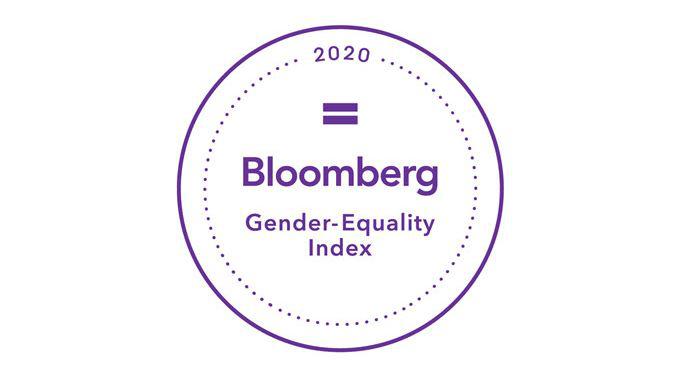Sustainability has increasingly become a cornerstone for a company's development and provides motivation for its evolution. The company is no longer just a profit machine, but also a vehicle able to pave the road towards the unavoidable objectives of economic and social equality, which aim to improve the future of this generation, as well as the next. But there is no doubt that the road to sustainability must necessarily involve gender equality too. It’s men and women who are treated equally, who take home the same salary at the end of the month for the same work, who have the same access to the labour market and the same career opportunities, who climb the career ladder with commitment and effort.

Terna in the GEI Bloomberg index for the second consecutive year. CEO Luigi Ferraris: “We have a responsibility towards the entire community”.

If that’s the goal, there is still a long way to go to reach it. But there’s no shortage of encouraging signs and signals, and Terna is at the forefront of achieving true gender balance. "The Group has a responsibility towards the entire community, both on a daily basis and in the medium and long term", stated Chief Executive Officer and General Manager Luigi Ferraris. It’s no coincidence that the company managing the Italian electricity transmission grid is one of the few Italian (and international) companies to have a woman, Chairwoman Catia Bastioli, in a leading role, and places women at the centre of its growth and development policies.

It’s for these exact reasons that Terna has been confirmed for the second consecutive year as among the 325 companies worldwide included in the Bloomberg Gender Equality Index (GEI), an international index which measures company performance in terms of gender equality, quality and transparency in public reporting, within five strict parameters: female leadership, talent pipeline, equal pay, cultural inclusiveness, anti-harassment policies and brand strategies for female advancement. In 2020, Terna recorded above average results for the companies included in the index and the Utilities subset.
The 100/100 score for transparency and quality in reporting stands out, attributable to the company's monitoring of the main gender equality indicators suggested by the GRI (Global Reporting Initiative) standards and its efforts to address current inequalities in the treatment of men and women, in accordance with the Group's Code of Ethics. The company achieved a high score of 88.9/100 in the “Equal Pay & Gender Pay Parity” area, which measures the pay and compensation differences between men and women, and the “Pro-Women Brand” area, which analyses the brand’s strategies for promoting the work of women.
“I’m so pleased about our confirmation as part of the Bloomberg GEI. It recognises the importance and attentiveness which Terna places on gender equality as a fundamental element in sustainable management”, said Luigi Ferraris. Terna's improvements to gender equality policies over time are demonstrated by data in its 2018 Sustainability Report. In 2005, women represented 9% of the company's total workforce, rising to 13.5% in 2018. With the exclusion of manual workers (for which demand is almost exclusively male), the percentage has more than doubled to 18.5% of the total.
One result was also achieved by the fact that 26.6% of hires, net of manual workers, were women. In terms of positions, the proportion of female managers to total number of managers has increased to 19.7% and is higher than the percentage of women out of total employees, while 44.4% of Board of Directors members are women, with 55.6% men.

Payroll. The gender pay gap for executives and employees has steadily narrowed over the years to a level increasingly close to total parity: 6.1% for the former, 2.3% for the latter. The distance between male and female managers has widened (22.1% down from 29.4% in 2016), in consideration of the smaller number of people and the current pay gap, both of which are influenced by the nature of the roles and the few entries or exits recorded.
These are significant results if we take into account the fact that, in Italy, according to Eurostat, the adjusted gender gap, which takes into account the number of hours worked on gross monthly pay, shows a pay gap between men and women of 23.7%. This data places Italy 17th out of the 24 countries analysed by the European Institute of Statistics for the gender pay gap in the private sector. It doesn’t look much better on a global level, where the statistics in the Global Gender Gap Report presented in Davos by the World Economic Forum rank Italy in 117th place for women’s financial opportunities and involvement and 125th for equal pay between men and women, a sign that the road to achieving gender equality is still a long way off. And everyone has a duty to do their part.
Various other activities launched by Terna are aimed at narrowing the gap between men and women through structured and integrated family support. The company's welfare includes smart working, i.e. the possibility to work remotely one day a week, as well as various parental leave options, from five months of compulsory maternity leave with 100% pay to five extra days of paid leave for new fathers, from leave to accompany children on the first day of primary school to more flexible working hours for parents with younger children. Terna also offers all its employees the chance to allocate their performance bonuses to welfare provisions and services and pension contributions. Finally, the initiative launching a company kindergarten in our main offices in Rome is currently under way, which will allow parents to balance their work and parental commitments even better.